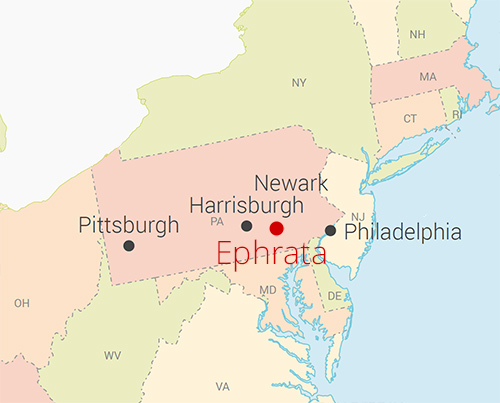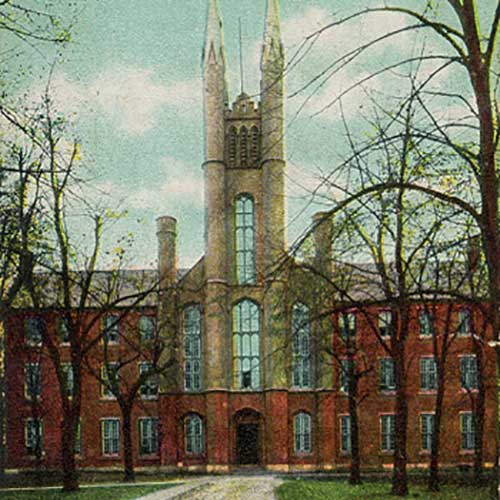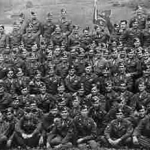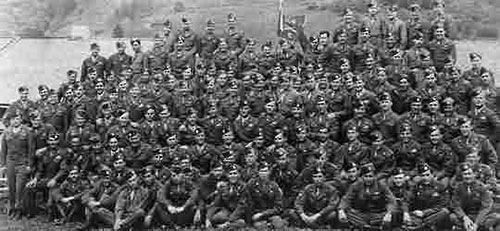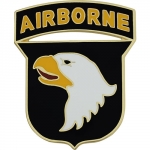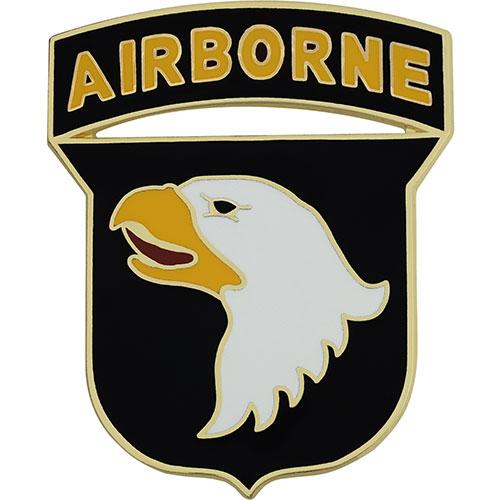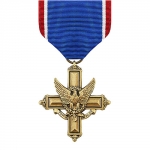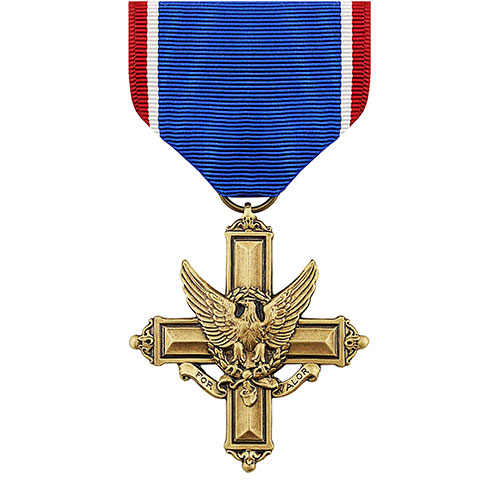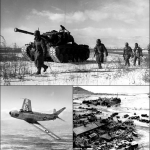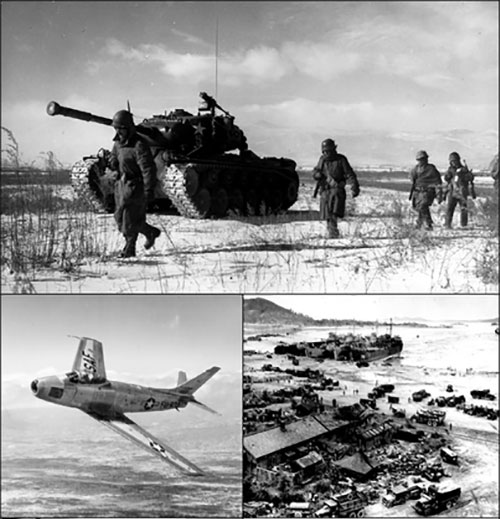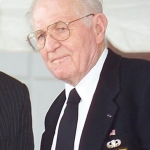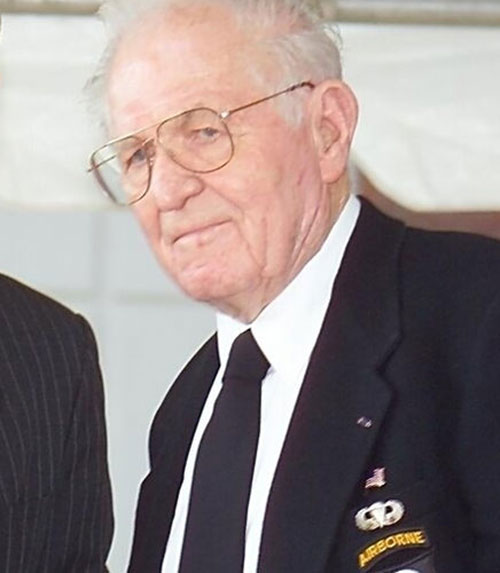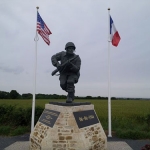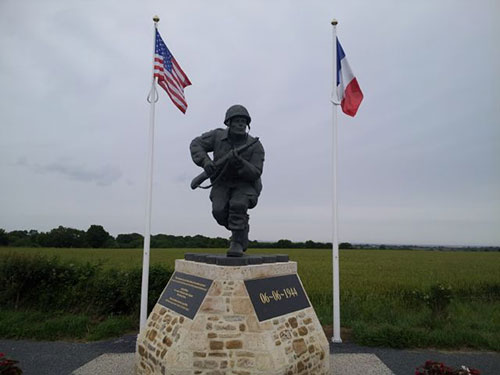Major Richard D. “Dick” Winters
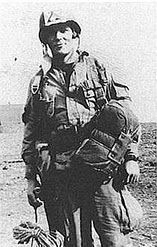
Biography
It was shortly after midnight on June 6th, 1944, when one of the most decisive attacks on the Nazi army was enacted. The Allies had been planning their course of action for months. Up until now, the Germans had a strong hold on continental Europe. D-day was the turning point for the allies and the first American involvement on the battlefield. The combined forces of twelve countries rained from the sky and crashed like waves on to the shores of northern France. While The Battle of Normandy is well-known for its amphibious attack, it was actually the airborne attack and paratroopers that struck first.
One of those paratroopers was Richard Winters, a small town boy from agrarian Pennsylvania; born January 21st, 1918. He had studied business in college and afterwards he joined the U.S. Army voluntarily. He had basic training in South Carolina and after being identified as a person with leadership potential, he was subsequently sent to Fort Benning, Georgia to attend Officer Candidate School. It was here that he decided to become a paratrooper. He was assigned to the Company E, 2nd Battalion, 506th Parachute Infantry Regiment. The 506th regiment was the first one to pursue airborne training as a cohesive unit and as such was a bit of an experiment; of the 5,300 volunteers only 1,800 men made it through.
At around 1 am on June 6th, 1944, Winters had landed in Normandy. Vital Ally planes had been gunned down and he had lost his weapon. Quick on his feet, he employed his natural leadership skills and rallied what paratroopers he could and carried on with the assignment; Winters assumed the role of acting commanding officer due to the fact that the previous lieutenant had been gunned down during the raid. He took his thirteen men, who were currently being fired upon and was able to destroy a German artillery of 105 guns manned by fifty platoons. After the battle he was promoted to captain and would lead his troops in several other tactical military strikes.
The E company also took part in other two major assaults under his command. The first being in September of 1944, Operation Garden Market, which ended up being a failed attempt to regain the Netherlands. The second operation, in December of the same year, the Battle of the Bulge, was far more successful and proved to be instrumental in weakening German forces.
During his time served he was promoted to the rank of Major. Winter’s valiant efforts earned him the Distinguished Service Cross, the second highest award that can be given to a member of the army. He earned numerous other medals and accolades. On June 6th, 2012, the 68th anniversary of D-Day, a bronze statue in his likeness was erected in Saint-Marie du Mont, France.
After the battles had subsided in Europe and the post-war procedures ensued, Richard had the clearance to return home. However, putting his duty to his country first, he stayed to assist the occupation of Germany. In 1945 he finally returned home and started working in New Jersey as a production supervisor at a plastic adhesives manufacturer. In 1950 he was called back to serve in the Korean War. He pleaded with General Tony McAuliffe and was able to avoid going back overseas to fight in yet another war. Instead he served one year at Fort Dix as a training officer. In 1972 he moved back to his home town of Hershey, Pennsylvania and started his own business selling The Hershey Companies’ chocolate byproduct as animal feed; a job from which he retired in 1997. He presented several lectures at West Point Academy and was awarded an honorary doctorate from his Alma Mater, Franklin and Marshall College. On January 2nd, 2011, Major Richard Winters passed on after a long battle with Parkinson’s disease. He lays to rest in a plot next to his parents in the sleepy-rural town of Ephrata, Pennsylvania.
His valor has been honored in several formats. In 1992, Stephen Ambrose published the book Band of Brothers, Easy Company, 506th Regiment, 101st Airborne From Normandy to Eagle’s Nest; a book about the company of which Richard Winters led. The book was adapted into an award-winning miniseries on HBO, Band of Brothers. Another author, Larry Alexander also wrote a book in 2005, Biggest Brother: The Life of Major Dick Winters, The Man Who Led the Band of Brothers and in 2006 Richard released his own memoir, Beyond Band of Brothers: The War Memoirs of Major Dick Winters.
The Major was nominated for the Congressional Medal of Honor. Unfortunately due to restrictions, only one award can be presented per division and it was given to another well-deserving lieutenant. Since the airing of HBO’s Band of Brother’s, supporters of Winters have engaged in a letter writing campaign to have the Congressional Medal of Honor bestowed upon him. While he has since passed on, the medal can be awarded posthumously.
Richard D. "Dick" Winters' Ribbon Rack
Hover over or click award for more information.
Photo credit attributed to: Croix de guerre 1939–1945 stripe bronsepalme" by Ordensherre - Own work. Licensed under CC BY-SA 3.0 via Wikimedia Commons
Photo credit attributed to: Croix de guerre 1939–1945 stripe bronsepalme" by Ordensherre - Own work. Licensed under CC BY-SA 3.0 via Wikimedia Commons
Oorlogskruis with Palm" by EHDI5YS (talk) - I created this work entirely by myself.. Licensed under CC BY-SA 3.0 via Wikipedia
Oorlogskruis with Palm" by EHDI5YS (talk) - I created this work entirely by myself.. Licensed under CC BY-SA 3.0 via Wikipedia
































